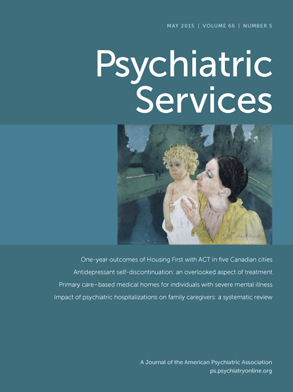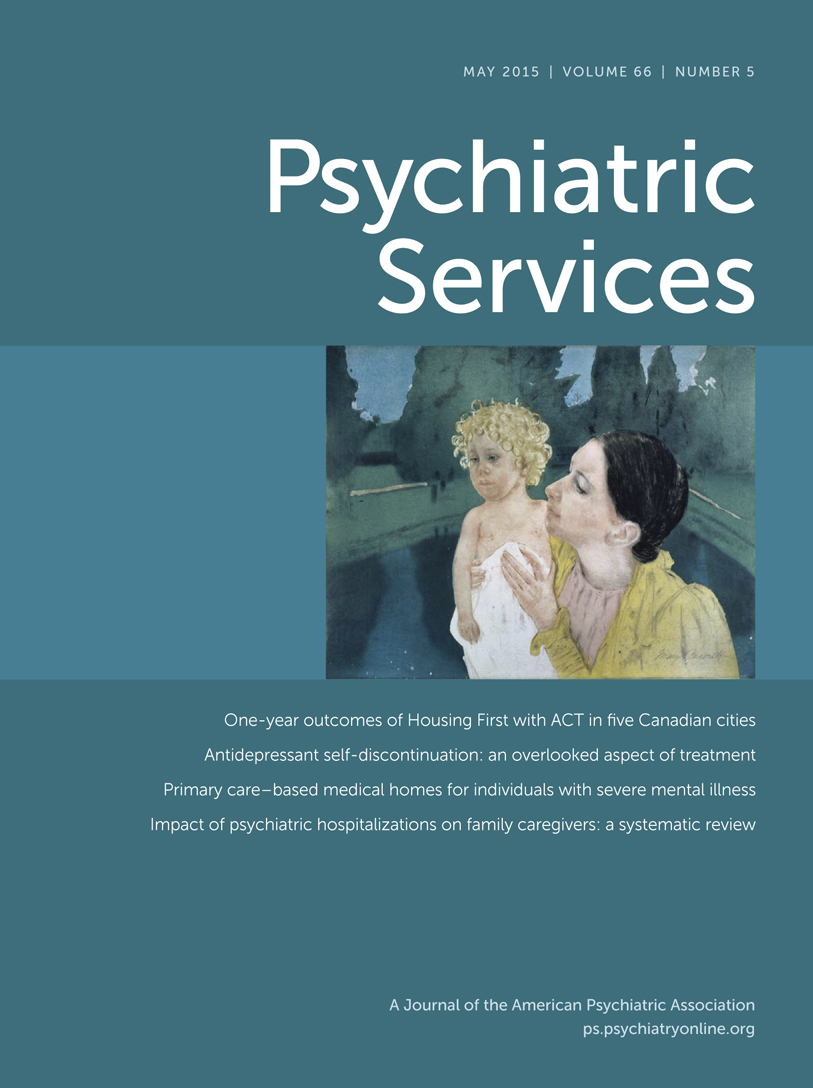Evidence that the average age of the U.S. homeless population has been increasing over the past several years is strong. Recent studies have estimated that about 33% of the homeless population are over the age of 50, compared with only 11% in the 1990s. From 2008 to 2012, there was a significant increase in the number of older persons who experienced extreme poverty and homelessness for the very first time as a direct consequence of the weakened economy. I am affiliated with a psychiatry clinic that is part of an integrated, federally qualified health clinic (FQHC; the Sulzbacher Center for the Homeless) based in Jacksonville, Florida. In 2012, over 25% of the clinic’s homeless patients were ≥55 years old. This finding was significant, given that geriatric syndromes (including functional impairment, cognitive deficits, visual and hearing losses, frailty, and depression) are associated with increased mortality and disability. Unfortunately, the clinic, which sees on average 500 persons per month for behavioral health care alone, was not offering specialized geriatric services to meet this growing need in the community’s homeless population.
In September 2013, the clinic developed a plan to create a behavioral health initiative for older persons (≥55 years) who were experiencing homelessness. The purpose of the specialty clinic being developed would be to better assess geriatric syndromes and to provide a tailored, integrated treatment approach that took into account the unique recovery needs of older individuals who were homeless.
A comprehensive geriatric program was implemented in December 2013 to identify and address the unique psychiatric and primary care needs of homeless older persons. The biweekly Geriatric Psychiatry Clinic provides individual psychiatric assessments and multimodal treatment planning. During the assessment, clinicians focus on identifying specific geriatric syndromes (such as cognitive impairment, grief issues, atypical mood disorders, and “hidden” substance use disorders) and on recognizing comorbid general medical conditions that may exacerbate the reported psychiatric symptoms (including diabetes, congestive heart failure, chronic pain, and low visual or hearing acuity). Individuals with untreated general medical disorders are immediately referred to the integrated primary care clinic, where they are assessed and receive timely treatment. Pharmacologic interventions take into account the unique age-related aspects of prescribing psychotropic medication to older persons.
The geriatric program also provides, when indicated, a licensed mental health counselor to provide continuous individual psychotherapy that focuses on the special needs of the older person experiencing homelessness (such as life transitions, grief and loss, vocational clarification, and social isolation). The counselor also offers a weekly wellness group. This latter modality, which is conducted in a six-week cycle, involves a group exploration of the physical, intellectual, emotional, and spiritual issues that arise as one ages. However, a particular focus on how these issues are affected by the experience of homelessness is emphasized. In addition, a peer support specialist meets individually with many of the participants on a weekly basis to provide mutual support and to assist in the development of a Wellness Recovery Action Plan. Finally, many of the persons followed in the geriatric program have also actively participated in the National Alliance on Mental Illness Peer-to-Peer class that ran for ten weeks this past summer. This particular therapeutic modality provided additional emotional, social, and psychoeducational support for those in the geriatric program.
Over the past 12 months, this specialty clinic has provided services to approximately 40 individuals experiencing homelessness; ages range from 55 to 74, with the average age approximately 60 years. Twenty-two of these individuals have transitioned to permanent housing and independent living in the community. Results culled from patient satisfaction surveys, particularly the wellness group and the Peer-to-Peer support groups, have all been uniformly excellent. Moreover, based on outcomes, the geriatric program was recently funded by the Jacksonville Community Foundation, a local philanthropic organization that will ensure the program’s fiscal viability for the foreseeable future. FQHCs across the country that provide behavioral health services to older persons experiencing homelessness might wish to explore the possibility of developing similar initiatives.

